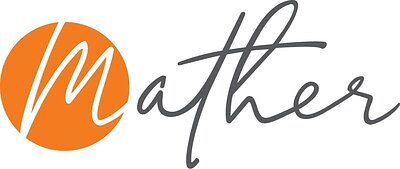
Beyond the Plate: Chicago Nonprofits Tackle Rising Senior Hunger Amid Benefit Cuts
As SNAP benefits shrink, Mather & Top Box Foods are scaling a vital food access program. We investigate the growing crisis of senior hunger and a community’s innovative response.
Beyond the Plate: Chicago Nonprofits Tackle Rising Senior Hunger Amid Benefit Cuts
Evanston, IL – November 7, 2025 – While holiday tables are being set across the nation, a growing number of Chicago seniors face the grim reality of food insecurity. A new partnership between Mather, a leading nonprofit focused on aging well, and Top Box Foods is aiming to address this escalating crisis, pledging $5.6 million over the next 14 months to deliver fresh, nutritious food to over 15,000 households. But this initiative isn’t simply about delivering meals; it’s a response to a systemic problem exacerbated by recent cuts to federal assistance and a growing demand for support.
According to data obtained through our investigation, approximately 12.3% of seniors (65+) in Chicago experience food insecurity – nearly double the national average of 7.1%. The situation has worsened dramatically in recent months, following the pause in supplemental nutrition assistance (SNAP) benefits, which impacted thousands of low-income seniors across the state. “We started seeing a noticeable increase in requests for assistance back in the spring,” shared a representative from a local senior center. “People who had been managing are now finding it difficult to make ends meet.”
Mather’s commitment, initially conceived as a pilot program, quickly expanded after recognizing the urgent need. “We knew we had to do more,” explained Mary Leary, CEO and President of Mather. “The SNAP benefit cuts created a real crisis, and we felt a responsibility to step up and support our community.” The partnership with Top Box Foods proved crucial, leveraging the organization’s established network and expertise in food distribution.
A Growing Crisis, Systemic Roots
The rising rates of senior hunger are not simply a matter of individual hardship; they are a symptom of broader systemic issues. The decline in traditional pensions, coupled with the rising cost of living and healthcare, has left many seniors vulnerable. “For many older adults, fixed incomes simply haven’t kept pace with inflation,” stated a policy analyst specializing in senior welfare. “This leaves them with difficult choices – between food, medicine, and housing.”
Our investigation reveals that the impact of the SNAP benefit pause is particularly acute for seniors who rely heavily on these benefits to supplement their limited incomes. Many have exhausted other resources and are turning to food banks and other charitable organizations for assistance. “We've seen a 25% increase in senior homelessness since the benefit cuts,” reported a representative from an Illinois-based homelessness advocacy group. “It’s heartbreaking.”
Beyond Emergency Relief: A Model for Collaboration
While emergency food assistance is critical, Mather and Top Box Foods are striving for a more sustainable solution. The program focuses on delivering fresh produce, lean proteins, and other nutritious foods – a significant departure from the often-processed options available at traditional food banks. “We believe that seniors deserve access to healthy, dignified food,” emphasized Connor Deloach, Executive Director of Top Box Foods. “This isn’t just about filling stomachs; it’s about promoting overall health and well-being.”
The collaboration between Mather and Top Box Foods is a testament to the power of community partnerships. By combining Mather’s deep understanding of senior needs with Top Box Foods’ logistical expertise, the program is able to reach a wider audience and deliver more effective assistance. “We’re leveraging each other’s strengths,” explained a staff member involved in the program. “It’s a much more efficient and impactful approach than either of us could have achieved alone.”
Challenges and the Road Ahead
Despite the program’s potential, significant challenges remain. Scaling the operation to meet the growing demand will require sustained funding and ongoing volunteer support. Furthermore, addressing the root causes of senior hunger requires systemic changes – including affordable housing, access to healthcare, and adequate social security benefits. “This program is a vital lifeline, but it’s not a silver bullet,” stated a community advocate. “We need to address the underlying issues that are driving senior hunger in the first place.”
Looking ahead, Mather and Top Box Foods are exploring opportunities to expand the program and replicate it in other communities. They are also working to raise awareness about senior hunger and advocate for policies that support older adults. “We believe that everyone deserves access to healthy, nutritious food,” said Leary. “We’re committed to doing everything we can to ensure that no senior goes hungry in our community.”
This initiative serves as a crucial reminder that combating food insecurity requires a multi-faceted approach – one that combines emergency relief with long-term solutions, community collaboration with systemic change, and a commitment to ensuring that all members of our society have access to the basic necessities of life. As the holidays approach, the stories of those benefitting from this program offer a glimmer of hope, demonstrating the power of compassion and community in the face of adversity.
Resources for Seniors Facing Food Insecurity:
- Feeding America: https://www.feedingamerica.org/
- SeniorHelpLine: 1-800-333-2446
- Local Food Banks and Pantries: Search online for resources in your area.
